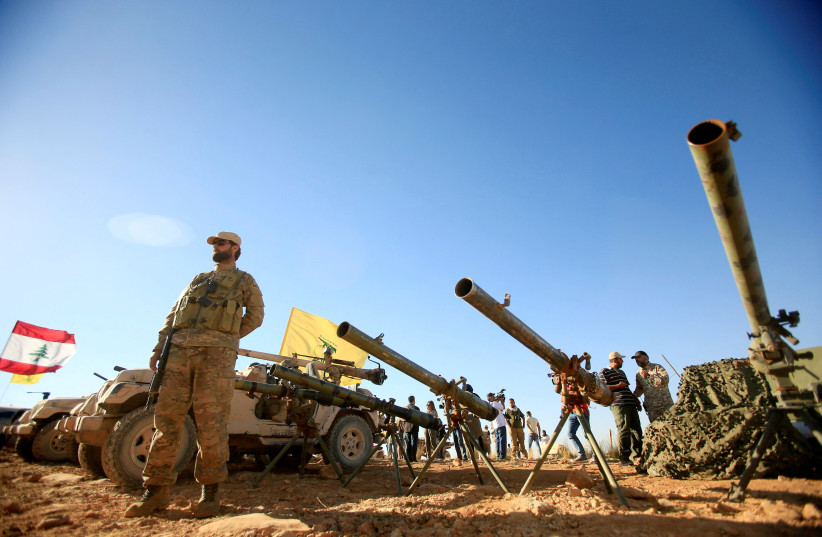In the painful lessons learned from the events of October 7, Israel was reminded of a harsh truth: temporary silence cannot be purchased at the expense of a more severe conflict in the future. A terror organization that continues to arm itself and prepare for an attack on Israel represents an unacceptable threat at our doorstep.
Regrettably, Hezbollah today poses a significant challenge, one that will be difficult to confront. Reports indicate that Hezbollah has approximately 150,000 missiles and rockets, including precision-guided and heavy missiles. Their arsenal is also managed by a well-trained fighting force known as the Radwan Force. The Israeli populace is understandably hesitant about a confrontation with Hezbollah, knowing all too well the implications such a war would have on the Israeli home front – a conflict far more challenging than any we have faced with Hamas in Gaza.
However, we must open our eyes to the reality before us. The fact is that Hezbollah poses an even more serious threat to Israel than Hamas does, and we cannot afford to ignore it and allow the situation to deteriorate. Given Hezbollah’s genocidal ideology, almost identical to that of Hamas, it is reasonable to assume that a confrontation is inevitable. The question, therefore, is not if but when.
At this juncture, Hezbollah’s current deterrence from escalating conflict with Israel signals that now might be the opportune moment for the Jewish state to consider a decisive move against the Lebanese-based terrorist group.
Several factors contribute to Hezbollah’s current reluctance to engage in a more intense conflict with Israel. The surprise element that it might have counted on was significantly diminished following Hamas’s attack in October.
Moreover, Hezbollah’s stance on Iran’s nuclear project could indicate additional reasons for its hesitation. Some argue that it is waiting for an Iranian nuclear umbrella to protect its operations against Israel, potentially limiting Jerusalem’s response capabilities. Others suggest that Tehran prefers to preserve Hezbollah’s strength to protect its nuclear ambitions, rather than squandering it prematurely.

These reasons, highlighting why the timing might not be right for Hezbollah, precisely indicate why it could be opportune for Israel. Hezbollah is in a position where it cannot afford to strike first, yet it has already initiated hostilities – and under international law, Israel has the right to respond. Taking decisive action against Hezbollah now could grant Israel greater freedom to address the Iranian nuclear threat. Should Iran achieve nuclear capability – a scenario Israel must prevent at all costs – Hezbollah would no longer be shielded by Iran’s nuclear umbrella.
Every day that passes is a day Hezbollah uses to strengthen and prepare for an eventual confrontation with Israel.
Such a conflict will undoubtedly be challenging, both militarily and on the home front, and we operate under the assumption that it is inevitable. Therefore, Israel must choose the most opportune time for us and the least opportune for them. There are additional factors to consider in determining this timing, and it’s not solely about choosing the worst time for our adversary. However, we cannot revert to a passive stance that allows a grave threat to Israel to grow stronger over time.
At the onset of the conflict, there was a notion to strike Hezbollah alongside Hamas. Decision-makers wisely chose not to, opting instead for a thorough and deep handling of Hamas, with significant international support. The message to the world – that those who commit atrocities like those of October 7 will not survive – is crucial and we had to focus on that message.
However, once we have addressed the situation in Gaza, or at least reached a critical phase after defeating the remaining battalions in Rafah, our gaze must inevitably turn northward.
Preference for a diplomatic solution
In recent weeks, the State of Israel has expressed a preference for a diplomatic agreement over military confrontation to secure the return of the Israeli population to the North. Such a stance assumes that merely pushing Hezbollah forces back is sufficient – a notion that could be reversed within days after any agreement is reached. This approach also overlooks the long-term problem of Hezbollah’s strengthening, an organization no different in essence than Hamas. No diplomatic agreement can address this issue: It seems we are destined for a third Lebanon war.
In facing such a daunting prospect, Israel’s leadership and its people must be prepared for the challenges ahead.
The decisions we make today will shape the security and stability of our region for years to come. It is a burden we bear with the solemn understanding that the defense of our nation and the safety of our citizens are paramount.
The path forward is fraught with difficulty, but the resilience and determination of the Israeli people have always been our greatest assets in the face of adversity.
The writer, a Likud MK, is a member of the Knesset Foreign Affairs and Defense Committee.
